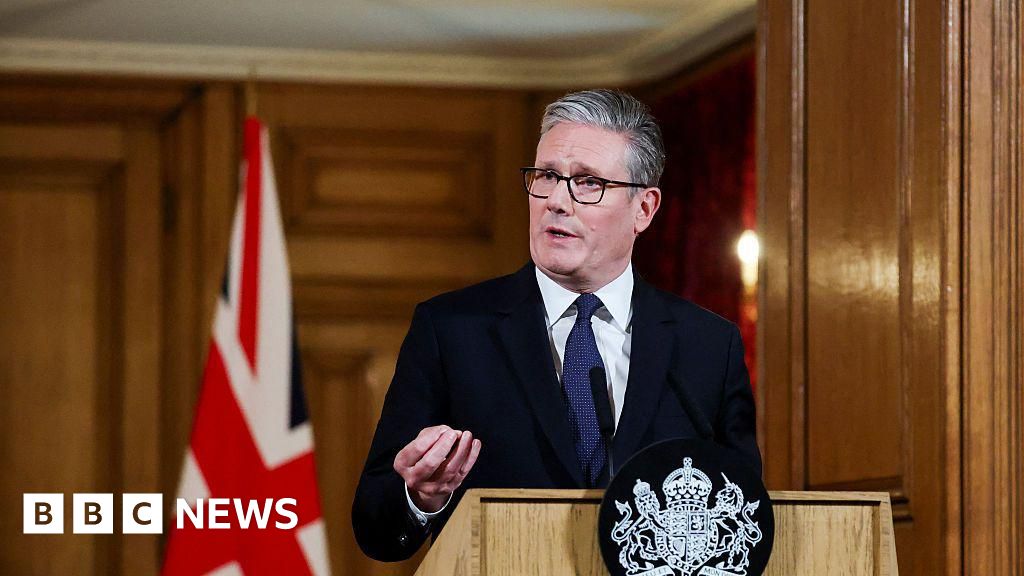Keir Starmer Challenges Trump on European Migration Policy
In recent political discourse, immigration remains a pivotal topic, especially in the context of European migration policy. Keir Starmer, the leader of the UK Labour Party, has openly challenged former President Donald Trump regarding his views on immigration, particularly in relation to the complexities surrounding asylum seekers and migration management.
Understanding the Current Climate of Immigration
The landscape of immigration has transformed significantly over recent years, bringing various challenges and opportunities. Politicians across the globe are grappling with how best to manage increased migration flows while ensuring national security and humanitarian responsibilities are met. The intricate balance between these elements is often highlighted in discussions about policies that foster inclusivity versus those that impose restrictions.
Starmer’s critique of Trump’s approach can be understood against the backdrop of ongoing debates about immigration reform in both the United States and Europe. The former president’s stance has often favored stricter immigration controls, which some argue could lead to humanitarian crises.
Key Issues Raised by Starmer
Starmer’s challenge to Trump underscores several crucial issues:
Humanitarian Obligations: Starmer emphasizes the need for countries to fulfill their humanitarian obligations towards refugees and asylum seekers. This is particularly relevant in light of current immigration cases that highlight the struggles faced by individuals fleeing conflict and persecution.
National Security: While ensuring national security is paramount, Starmer argues that it should not come at the expense of compassion and support for those in need. His stance reflects a growing consensus among many immigration advocates who believe that security and humanity can coexist.
Immigration Policy Reform: The UK and the US are both in need of comprehensive immigration reform. Starmer suggests that dialogue and collaboration among nations can lead to more effective and humane immigration policies that can address both security concerns and humanitarian needs.
Challenges in European Migration Policy
The conversation around European migration policy is increasingly relevant as countries face waves of migrants from various regions, particularly from places like Cuba, Haiti, Nicaragua, and Venezuela. The complexities of these migration patterns necessitate a multifaceted approach to policy-making, which includes:
Collaboration among Nations: European nations must work together to create a unified strategy that addresses the root causes of migration while ensuring that asylum processes are fair and efficient. This is where the concept of advance parole becomes significant, allowing individuals to travel for specific purposes without losing their immigration status.
Public Sentiment: Immigration policies are often shaped by public opinion. In areas where anti-immigrant sentiment is strong, politicians may feel pressured to adopt harsher measures, which can lead to increased deportations and strained community relations.
Support Systems: There is a crucial need for robust support systems for immigrants, including access to legal assistance and community resources. The experiences of people deported from the US and their struggles upon return highlight the importance of comprehensive support mechanisms.
Implications of Starmer’s Challenge
Starmer’s challenge to Trump is more than just a political maneuver; it reflects a broader call for a reassessment of how immigration is viewed and managed. A few implications arise from this dialogue:
Policy Innovation: Engaging in discussions about immigration can spark innovative policy solutions that prioritize both security and humanitarian needs, such as the recent developments in humanitarian parole programs.
Potential for Reform: As we witness movements towards policies like DACA and the evolving landscape of immigration law, there is potential for significant reforms that could reshape how countries approach immigration.
Global Cooperation: The challenge also highlights the need for global cooperation in addressing migration, especially as climate change and geopolitical instability continue to drive people from their homes.
The Future of Immigration Policy
As the conversation on immigration continues, it’s clear that the future will require policymakers to navigate the complexities of migration with a balanced approach. This involves:
Proactive Engagement: Engaging with communities affected by immigration policies to understand their needs and perspectives. This dialogue can help shape policies that are not only effective but also equitable.
Education and Awareness: Raising awareness about the realities of immigration can help combat misinformation and foster a more welcoming environment for immigrants. This is essential for communities grappling with the impacts of immigration.
Legislative Action: As discussions evolve, legislative action will be necessary to implement meaningful reforms that address the ongoing challenges within the immigration system, including the issues surrounding ICE deportation practices and the need for more humane treatment of immigrants.
In conclusion, the challenge posed by Keir Starmer to Donald Trump regarding European migration policy is a reflection of broader immigration issues that need urgent attention. As nations navigate this complex landscape, it’s essential that they prioritize both security and humanitarian needs, paving the way for a more inclusive and effective immigration system. The ongoing dialogue around immigration reform will undoubtedly shape the policies of tomorrow, impacting countless lives along the way.










